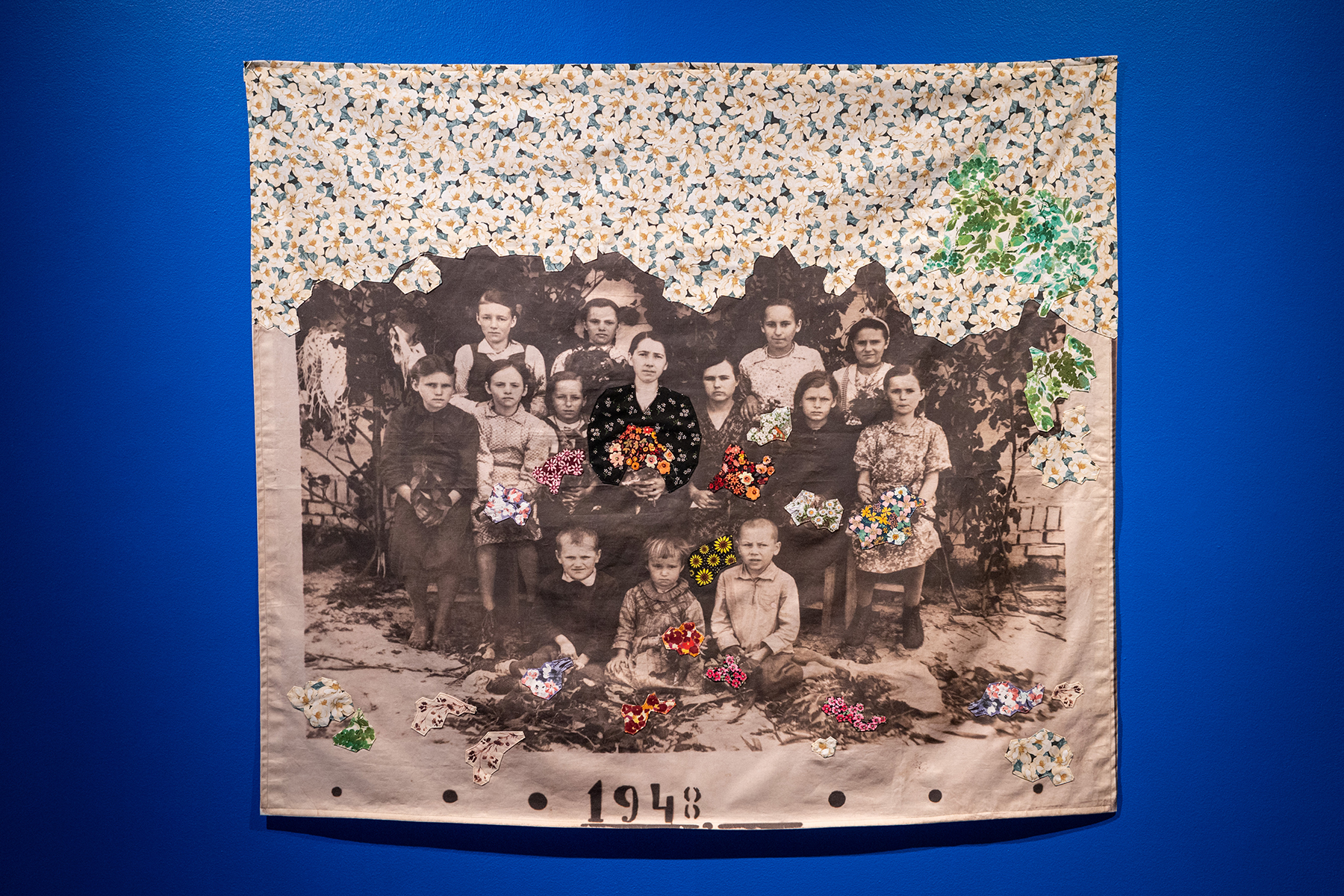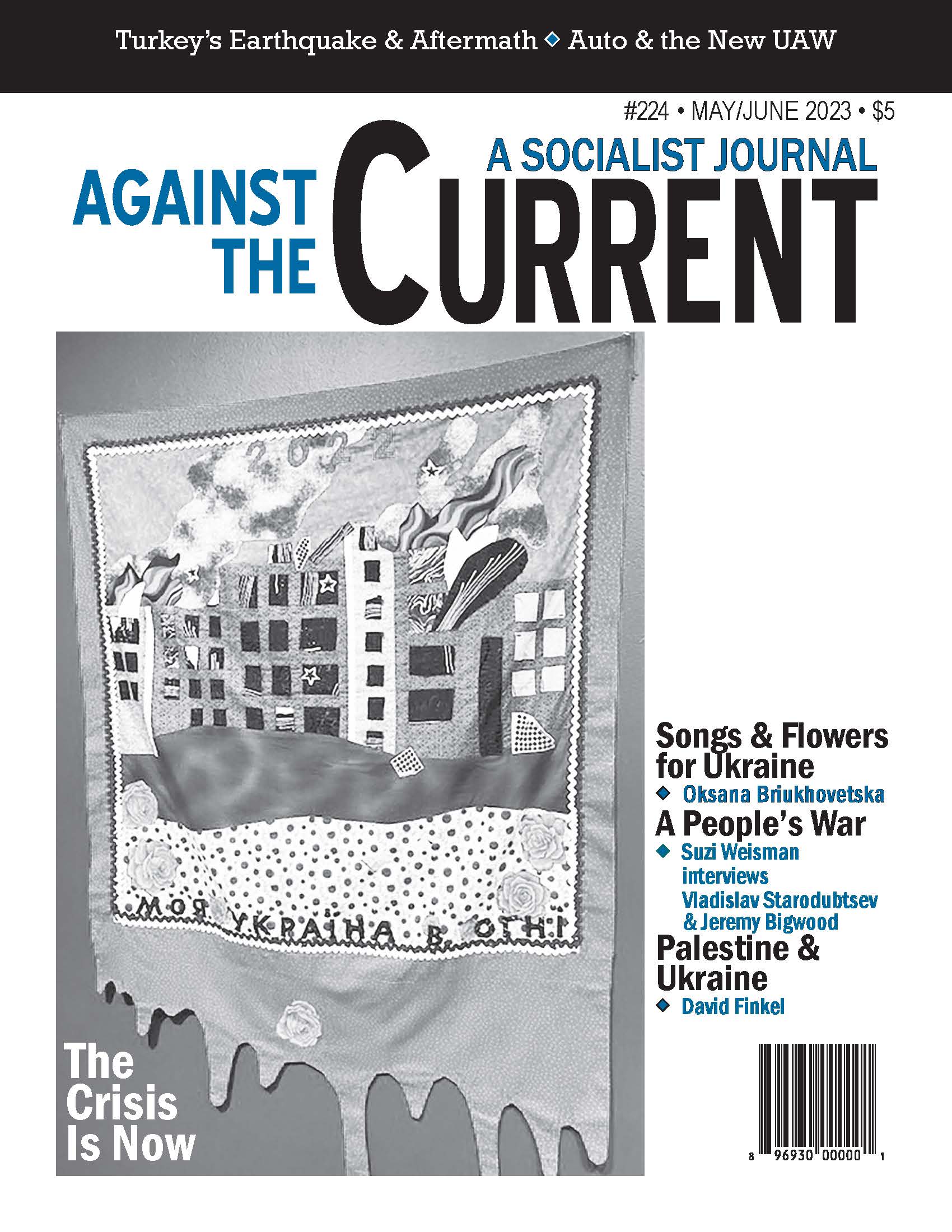Against the Current, No. 224, May/June 2023
-
Desperate Journeys. Sick System!
— The Editors -
In Defense of Being Awake
— Malik Miah -
Strange Career of the Comstock Law
— Dianne Feeley -
Anti-Trans Legislation, a Form of Reproductive Injustice
— Shui-yin Sharon Yam -
Frank Hamilton, the People's Musician
— David McCullough -
Earthquake Aftermath in Turkey
— Daniel Johnson -
Peripheries of Chinese Imperialism: Belt & Road Initiative in Jamaica
— Robert Connell -
Police Revolt & Hastings Street Tent City
— Ivan Drury - New Labor
-
Another Restructuring: A Challenge for the UAW
— Dianne Feeley -
The Future of Academic Unionism Will Play Out at the University of California System
— Barry Eidlin - The Struggle for Self-Determination
-
Songs and Flowers for Ukraine
— Oksana Briukhovetska -
A Discussion with Eyewitnesses: People's War in Ukraine
— Suzi Weissman interviews Vladislav Starodubtsev & Jeremy Bigwood -
From Ukraine to Palestine: The Poisons of Denialism
— David Finkel - Reviews
-
Exploring White Supremacy
— Bill V. Mullen -
The Price of Slavery
— Christopher McAuley -
No Mercy Here
— Alice Ragland -
Lac-Mégantic Rail Disaster
— Guy Miller -
The Working Class in Turkey Today
— Daniel Johnson - In Memoriam
-
Frank Thompson, 1942-2021
— Dianne Feeley
Oksana Briukhovetska

MY HEART IS bleeding for my country Ukraine, and searching for mourning, for the possibility to bring flowers of my grief to infinite graves that emerge every day on Ukrainian soil. The question “Why war?” was discussed by intellectuals a century ago in between the two World Wars, and was not resolved neither then nor now. Destroyed buildings in Ukraine today remind us of Ukraine in flames during the Second World War. New wounds hurt on top of old ones.
My grandmother Halia survived an artificially inflicted famine in Ukraine known as Holodomor in 1933 at the age of ten, and the occupation of her village by the Nazis in 1941. Just married, she gave birth to her first child under occupation. After the war she took part in rebuilding a burned village school in which she taught children the rest of her life. Listening to her stories I was sure that the horror of war would never happen to us again. I was wrong.
She is young and not smiling in these photos. She and her fellow teachers and children who survived war don’t smile. But they are holding flowers. They are witnessing trauma outside and inside themselves. My ancestors are silently mourning not only victims of their time but those of the next generations, who are dying today on Ukrainian land which is soaked in blood.
I refer to Ukrainian folk culture by recreating its language from materials found far from home, having home in my heart. Ukrainian poet Lesia Ukrainka said more than a century ago, “I have in my heart something that doesn’t die.” And it is Ukraine which is in our hearts. My grandmother Halia taught me a folk song about a bird flying through the house, who is not a bird but a mother. This bird for me today represents a motherland, wounded by Russian rockets.
A cuckoo flew through my house
And it’s not a cuckoo, it’s my mother
If she knew about my sorrow
She would pass a piece of bread by a sparrow
A piece of bread by a sparrow
A bit of salt by a tit
Oh mom, oh mom, how hard is my fate.
The red viburnum berries which are a symbol of Ukraine are bleeding here as well. Another song, which has become symbolic during this war emerged a century ago through the struggle of Ukrainians for their freedom. It makes us believe today that Ukraine will win, and that red viburnum will thrive again as a symbol of life, beauty and love.
Oh, in the meadow the red viburnum bent down
Our glorious Ukraine is grieving
But we will raise that red viburnum
And we will cheer up our glorious Ukraine!
Someone said in the year of 2022 that Ukrainians should look at the flowers while taking breaks in watching the news, that the beauty of flowers can heal. War kills beauty. But beauty can be used as a tool of resistance, and despite all the destruction, flowers will grow the next year again.
May-June 2023, ATC 224

